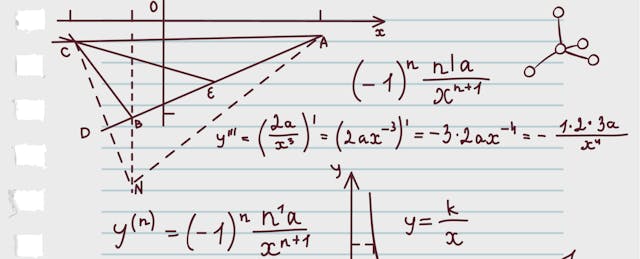Education reformers often bemoan that schools never shed programs that are no longer needed or effective. New school initiatives are consequently layered on top of past practices, which means schools become overburdened and educators struggle to implement new ideas—all of which is costly.
But reformers often seem less likely to ask the same questions of curriculum despite changing world conditions.
Algebra is a prime example. It’s seen as a gateway course to college success, with a bevy of research to support the contention.
Reformers have often accordingly doubled down on efforts to help students pass algebra. But as with many endeavors, finding a good answer depends on asking the right question.
The logic is circular in this case. It says, in essence, that schools require algebra. Students who don't do well in algebra do poorly in school. Therefore, shouldn’t we double down on helping more students pass algebra?
But perhaps we should ask different questions. Does every student need to take algebra? Could we not find a better set of mathematical experiences to build students’ fluency for today’s world? What if colleges were to rethink the importance and relevance of algebra?
University of Chicago economist Steven Leavitt devoted a recent Freakonomics podcast to the question and essentially concluded that algebra should not be a requirement. He notes that the primary reason high schools offer algebra is because Harvard began requiring knowledge of the subject in 1820 in order to gain admittance. As a result, secondary schools began teaching algebra.
Fifty years later Harvard added geometry to its requirements—and secondary schools again followed suit.
Jo Boaler, a professor of mathematics at Stanford, has written a lot on the topic. On the podcast, she says that no other country requires this “geometry sandwich—a course of algebra for a whole year, followed by a course of geometry for a whole year, and then another course of algebra.” She contends that this historical legacy is reflected in the paltry mathematics results on tests of America’s students.
Levitt concludes that every high school student should instead graduate with data fluency, which he describes as “an understanding of the difference between correlation and causality; the ability to evaluate claims that others make with data; maybe even to take a pile of data and make sense of it.” Yet he points out that “only 10 percent of high school students take a statistics class—and even most statistics courses are primarily theoretical rather than requiring students to get their hands dirty with data.” (The figure, according to the National Center of Education Statistics, was 11 percent in 2009.)
This would be far more relevant than algebra for the vast majority of students. As Anthony Carevale, the director of the Center on Education and the Workforce at Georgetown University, told Education Week, just 11 percent of U.S. jobs involve work that requires understanding Algebra 2 concepts, and only 6 percent regularly use advanced algebraic operations.
Topics like data fluency and financial literacy, on the other hand, appear to be far more in-demand—not just in the workplace, but also in everyday life.
So why won’t colleges abandon the algebra requirement? As selective universities think about how they can best support K–12 schools, thinking through admissions requirements would be a good start.
One charitable explanation is that colleges and universities are worried about how students will acquire analytical, problem solving, and reasoning skills.
But if teaching reasoning and problem solving is the purpose of algebra, then why not teach those and similar topics explicitly? That’s the approach taken by the Minerva Institute, an accredited, alternative university program which teaches logic, reasoning and analyses in its first-year courses. (For those interested in learning more about how Minerva teaches these principles, I highly recommend the book “Building the Intentional University,” edited by Stephen M. Kosslyn and Ben Nelson, who founded Minerva and offer the book as an open manual for their approach for anyone to copy.) Jonathan Haber also offers a helpful summary on the topic of teaching reasoning in his forthcoming book “Critical Thinking” for MIT Press.
The point is that understanding algebra is not the only way to learn these skills—and it certainly isn’t the most direct. Algebra need not be the gateway to learning these skills, let alone the gateway to college success.
There is certainly a limit to the logic. Committing multiplication tables to memory—although not by rote learning per se—has value in developing automaticity that allows us to do higher order math and application of complex concepts. But is that true of algebra in which concepts are used rarely in the real world?
As Tom Vander Ark, CEO of Getting Smart, wrote recently:
“High school should be an opportunity to figure out who you are, what you’re good at, and where you want to make a contribution. That should start with problem finding—spotting big tough problems of interest. Next comes understanding the problem and variables associated—that’s algebraic reasoning. But rather than focusing on computation (including factoring those nasty polynomials), students should be building data sets and using computers to do what they’re good at: calculations. Add some finance and probability to guide the investment of time and resources, and you have a new, more compact set of math requirements for making a living and making a difference.”
The good news is that there is some evidence that high schools and others are open to rethinking math courses and sequences. Although they aren’t going as far as Leavitt, Boaler, and Vander Ark suggest, it’s a welcome start to moving past symbol manipulation for its own sake. Algebra is yet another structure—along with courses, traditional letter grading, seat time and the like—that educators and policymakers should rethink for our current era.


